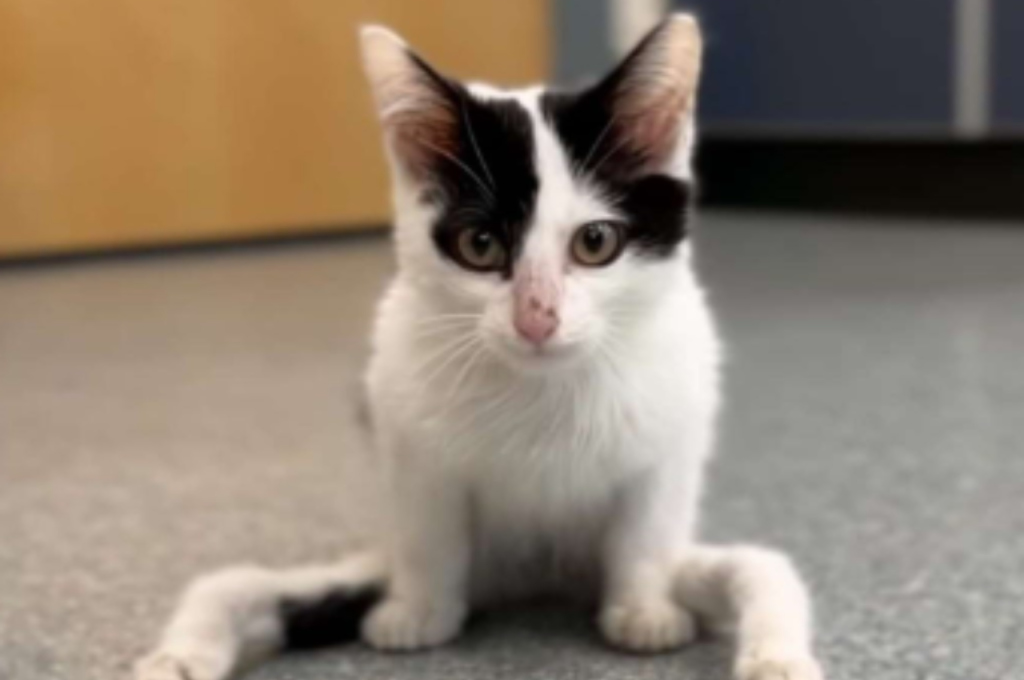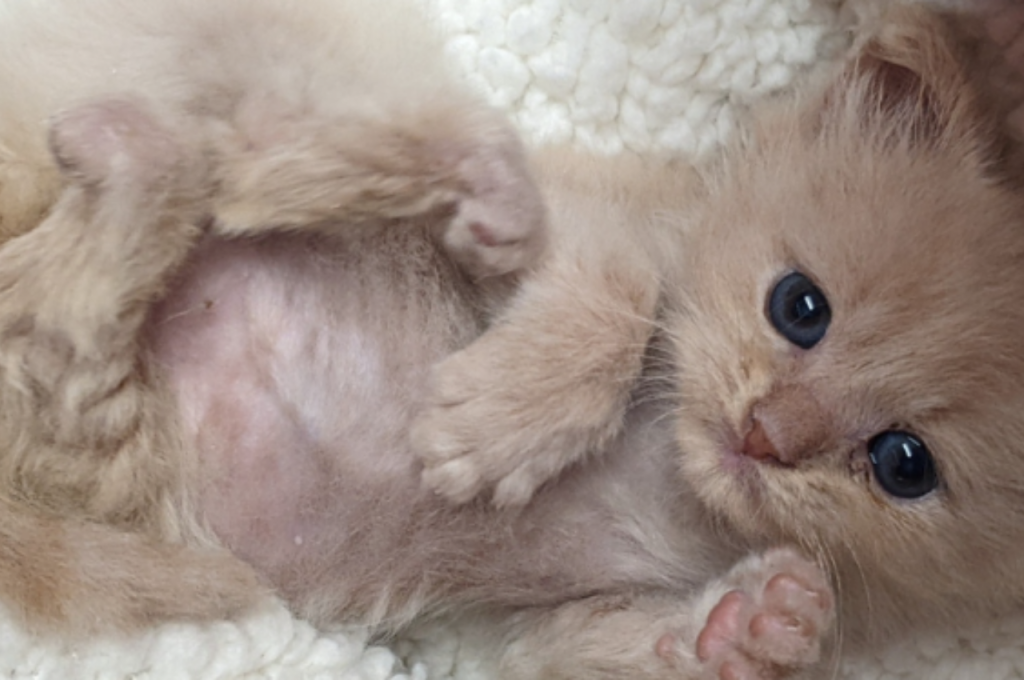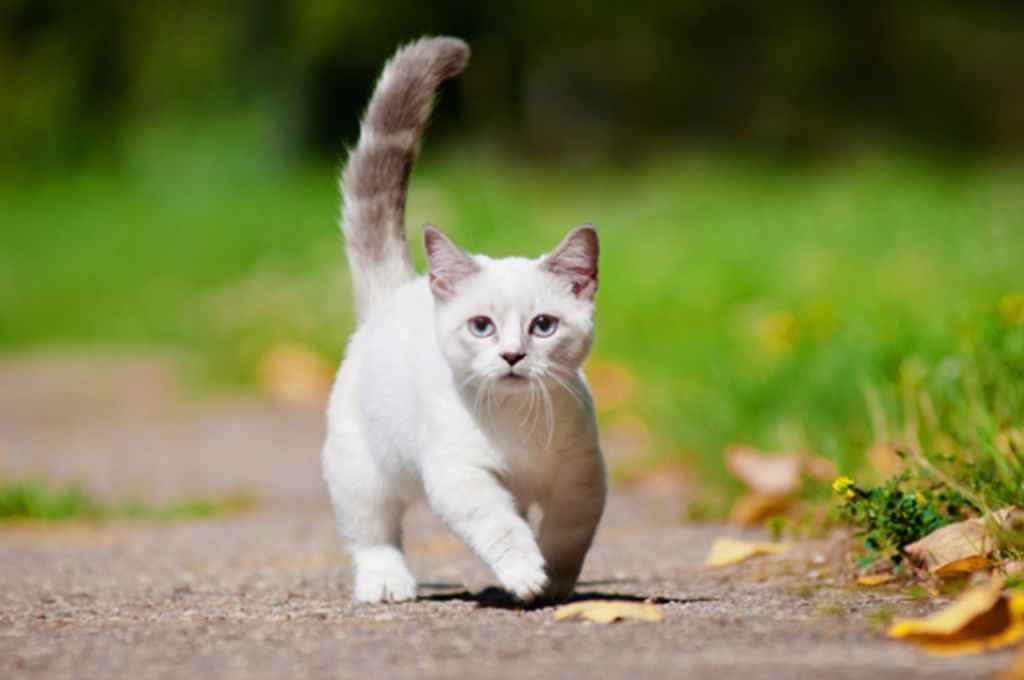Cat Genetic Syndrome is a genetic disorder that affects felines. It is a rare condition caused by specific genetic mutations that affect the development and function of various body systems.
Cats with this syndrome may have various abnormalities, including skeletal malformations, neurological defects, and vision and hearing impairments. The most common form of Cat Genetic Syndrome is called feline dysautonomia, which affects the autonomic nervous system and can cause a range of symptoms, including vomiting, diarrhea, and difficulty swallowing.
While there is no cure for Cat Genetic Syndrome, supportive care and management can help affected cats live a comfortable and happy life. It is important to note that not all cats with genetic abnormalities will develop Cat Genetic Syndrome, and not all cats with the syndrome will exhibit the same symptoms.
Introduction To Cat Genetic Syndrome
Cat Genetic Syndrome refers to inherited conditions impacting feline health and behavior. It encompasses a range of genetic disorders unique to cats, influencing their traits and well-being. Understanding these syndromes aids in providing appropriate care and treatment for affected cats.

The Fascination With Feline Genetics
Cat lovers have long been fascinated by the unique and diverse characteristics of these furry companions. From their striking coat patterns to their captivating eye colors, cats possess an array of genetic traits that make them truly fascinating creatures. Understanding the world of feline genetics allows us to delve deeper into the mysteries behind these traits and gain insight into the various genetic disorders that can affect our beloved feline friends.
A Brief Overview Of Genetic Disorders In Cats
Genetic disorders in cats are conditions that result from abnormalities or mutations in their genes. These disorders can affect various aspects of a cat’s health and well-being, ranging from physical characteristics to the functioning of internal systems. While some genetic disorders are relatively common, others are quite rare. One example of a genetic disorder in cats is Feline Hypertrophic Cardiomyopathy (HCM), a condition that affects the heart muscles and can lead to cardiac issues. Another well-known genetic disorder is Polycystic Kidney Disease (PKD), which causes the formation of cysts in the kidneys and can result in renal failure.
Understanding Cat Genetic Syndrome
Cat Genetic Syndrome is a term used to describe a collection of genetic disorders that can occur in cats. These disorders are often inherited and can affect various aspects of a cat’s health, appearance, and behavior. While each syndrome is unique, they all share the common factor of being caused by genetic abnormalities. Some of the most common genetic syndromes in cats include:
- Feline Leukemia Virus (FeLV): FeLV is a viral infection that weakens a cat’s immune system, making them more susceptible to other infections and diseases. It is a leading cause of illness and death in cats.
- Feline Immunodeficiency Virus (FIV): FIV is a viral infection that attacks a cat’s immune system, leaving them vulnerable to infections. It is often transmitted through bites during fights with other cats.
- Progressive Retinal Atrophy (PRA): PRA is a group of genetic disorders that cause the degeneration of the retina, leading to progressive vision loss and, in some cases, blindness.
- Colorpoint Restriction (Siamese Syndrome): This syndrome is characterized by the specific coat color pattern seen in Siamese cats. It is caused by a mutation in the gene responsible for producing pigments in the fur.
- Manx Syndrome: Manx cats are known for their lack of a tail or a short tail. This syndrome is caused by a genetic mutation that affects the development of the spine and tail.
Understanding Cat Genetic Syndrome is crucial for cat owners and breeders as it helps identify potential health issues that may arise in their feline companions. By being aware of these genetic disorders, we can take proactive measures to ensure the well-being and longevity of our beloved cats.
Overall, the world of feline genetics is a captivating field that continues to unravel the mysteries behind the unique traits and characteristics of our feline friends. By understanding Cat Genetic Syndrome and the various genetic disorders that can affect cats, we can provide them with the care and attention they need to lead healthy and fulfilling lives.
Identifying Cat Genetic Syndromes
Common Symptoms And Signs
Common symptoms of cat genetic syndromes may include abnormal physical appearance, such as unusual coat patterns or eye color, and developmental issues like delayed growth or coordination problems. Other signs to look out for are chronic health problems, behavioral abnormalities, and sensitivity to certain medications.
When To Consult A Vet
If you notice any of the mentioned symptoms or suspect that your cat may have a genetic syndrome, it is crucial to consult a vet immediately. Early detection and diagnosis can help in managing the condition effectively and improving your cat’s quality of life.
Types Of Genetic Disorders In Cats
In the world of feline genetics, certain cats may be born with inherited conditions known as genetic disorders. These disorders are caused by abnormalities in the genes, which can affect various aspects of a cat’s health. Two common types of genetic disorders in cats are Polycystic Kidney Disease (PKD) and Hypertrophic Cardiomyopathy (HCM). Let’s explore each of these conditions in more detail:
Polycystic Kidney Disease (pkd)
Polycystic Kidney Disease (PKD) is a hereditary condition that affects the kidneys of cats. Cats with PKD develop fluid-filled cysts in their kidneys, which can lead to kidney enlargement and decreased kidney function. This condition is most commonly found in Persian and Persian-related breeds, although it can occur in other breeds as well.
PKD is an autosomal dominant disorder, meaning that a cat only needs to inherit the PKD gene from one parent to develop the disease. Breeders can perform genetic testing to identify cats that carry the PKD gene, allowing them to make informed breeding decisions and reduce the prevalence of PKD in future generations.
Hypertrophic Cardiomyopathy (hcm)
Hypertrophic Cardiomyopathy (HCM) is a genetic heart disease that affects the structure of a cat’s heart muscles. In cats with HCM, the walls of the heart become thickened, making it difficult for the heart to pump blood effectively. This can lead to symptoms such as heart murmurs, difficulty breathing, and even sudden death.

HCM is a common genetic disorder in cats, and certain breeds such as Maine Coons and Ragdolls are known to be more predisposed to developing this condition. Genetic testing can help identify cats that carry the HCM gene, allowing breeders to make informed decisions and reduce the risk of passing on the disease.
It is important for cat owners and breeders to be aware of these genetic disorders and take appropriate measures to prevent their spread. Regular veterinary check-ups, genetic testing, and responsible breeding practices can all contribute to the well-being of cats and help reduce the prevalence of these genetic disorders.
The Science Behind Feline Genetics
Genetic Inheritance In Cats
Cats, like humans, inherit their traits from their parents through genetic inheritance. The process is governed by the transmission of genes from one generation to the next.
Mutations And Their Effects
Mutations can lead to changes in the genetic makeup of cats, resulting in various effects on their physical appearance, behavior, and health.
Diagnosis And Testing
Cat genetic syndrome refers to the various inherited conditions that can affect felines. Diagnosis and testing play a crucial role in identifying these syndromes, allowing for proper management and treatment. Genetic testing for cats is a valuable tool in determining the presence of specific genetic conditions, helping veterinarians provide targeted care for affected animals.
Genetic Testing For Cats
Genetic testing involves analyzing a cat’s DNA to identify any genetic mutations or abnormalities. This process provides valuable insights into a cat’s genetic makeup, helping to pinpoint potential health concerns. It can be particularly useful in identifying inherited disorders, such as polycystic kidney disease, hypertrophic cardiomyopathy, and progressive retinal atrophy.
Interpreting Test Results
Upon receiving the test results, it’s essential to interpret them accurately. Positive results indicate the presence of specific genetic mutations, necessitating appropriate management and monitoring. Conversely, negative results provide reassurance, ruling out the presence of certain genetic conditions. These findings enable veterinarians to tailor their approach to each cat’s unique genetic predispositions, ensuring targeted care and proactive disease management.
Treatment Options And Management
Cats with genetic syndromes require specialized care and attention. Understanding the available treatment options and management strategies is crucial in ensuring the well-being of these feline companions.
Managing Genetic Disorders
Early diagnosis plays a key role in effectively managing genetic disorders in cats. Developing a tailored treatment plan can help alleviate symptoms and improve quality of life.
Advancements In Treatment
Recent advancements in veterinary medicine offer promising treatment options for cats with genetic syndromes. From specialized medications to innovative therapies, there are more possibilities for managing these conditions than ever before.
Impact On Quality Of Life
Cat genetic syndrome can significantly impact the quality of life for felines, causing various health issues and affecting their overall well-being. This syndrome can lead to physical and behavioral changes, influencing their daily activities and interaction with their environment. Understanding and managing this genetic condition is crucial for ensuring the best possible quality of life for affected cats.
Living With A Genetic Disorder
Living with a genetic disorder can present challenges for cats and their owners. Cats affected by genetic syndromes may have unique needs and require special care to maintain their well-being.
Support And Care For Affected Cats
Support and care for cats with genetic syndromes is essential for ensuring their quality of life. Owners must provide consistent veterinary care and appropriate medication as prescribed.
- Regular veterinary check-ups
- Specialized diet and nutrition
- Safe and comfortable environment
Cats with genetic syndromes may experience physical limitations and chronic health issues. This can affect their overall happiness and ability to engage in typical cat behaviors.
| Challenges | Impacts |
| Reduced mobility | Limited play and exercise |
| Special dietary requirements | Need for customized nutrition |
Owners play a crucial role in providing emotional support and adapting the home environment to accommodate the specific needs of cats with genetic syndromes.
The Role Of Responsible Breeding
Responsible breeding plays a crucial role in preventing cat genetic syndromes. Genetic disorders like polycystic kidney disease and hypertrophic cardiomyopathy can be passed down through breeding. Breeders should conduct genetic testing to ensure healthy offspring and reduce the risk of hereditary conditions.

Preventing Genetic Disorders
- Preventing genetic disorders in cats is crucial for their well-being.
- Cat genetic syndromes can be minimized through responsible breeding practices.
Ethical Considerations For Breeders
- Breeders must prioritize the health and welfare of cats.
- They should avoid inbreeding to reduce genetic disorders.
- Regular health screenings for breeding cats are essential.
Conclusion
In understanding cat genetic syndromes, knowing common issues can aid in early detection and treatment. As responsible pet owners, recognizing these conditions is crucial for your cat’s well-being. By staying informed and observant, you can provide the best care for your feline companions, ensuring they lead healthy and happy lives.
